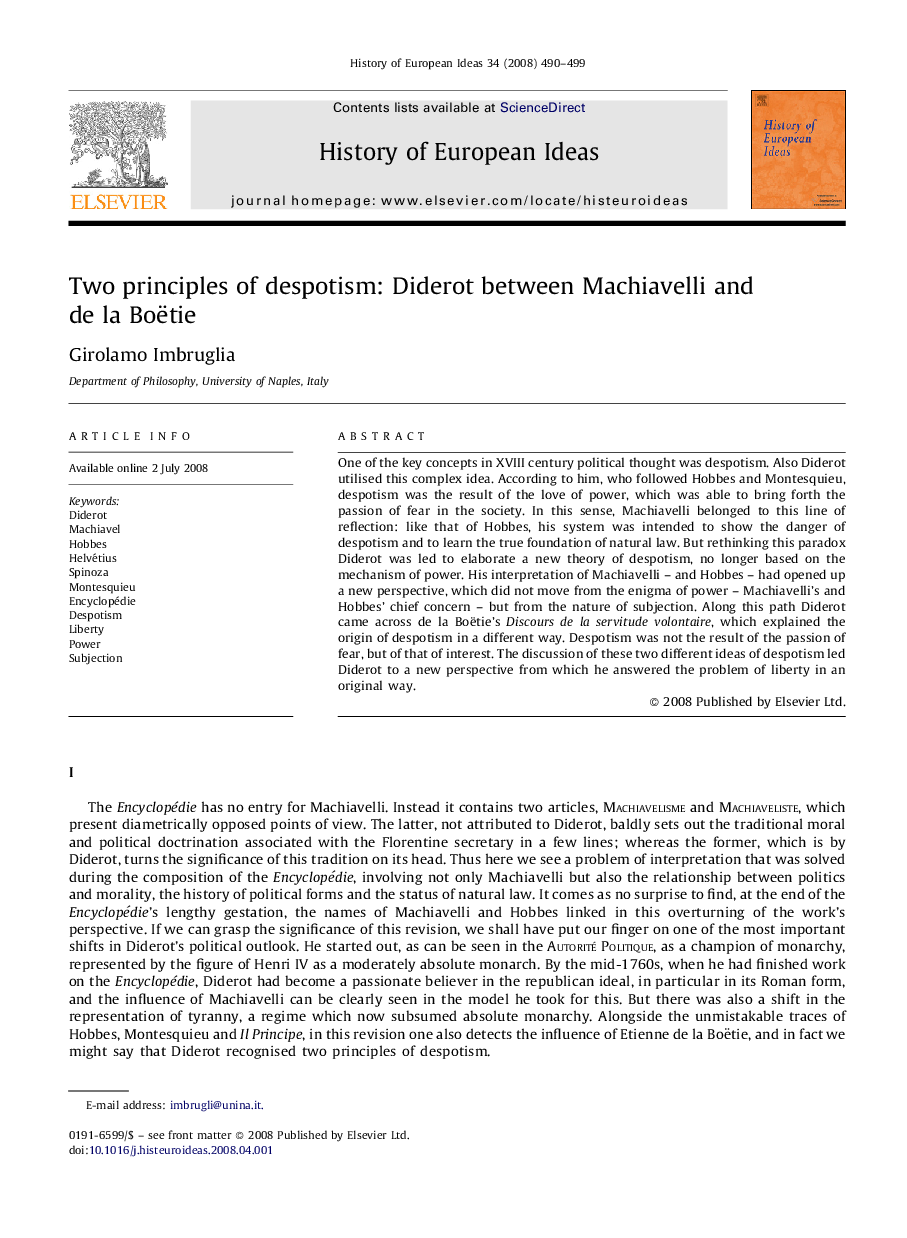| کد مقاله | کد نشریه | سال انتشار | مقاله انگلیسی | نسخه تمام متن |
|---|---|---|---|---|
| 1159136 | 1490072 | 2008 | 10 صفحه PDF | دانلود رایگان |

One of the key concepts in XVIII century political thought was despotism. Also Diderot utilised this complex idea. According to him, who followed Hobbes and Montesquieu, despotism was the result of the love of power, which was able to bring forth the passion of fear in the society. In this sense, Machiavelli belonged to this line of reflection: like that of Hobbes, his system was intended to show the danger of despotism and to learn the true foundation of natural law. But rethinking this paradox Diderot was led to elaborate a new theory of despotism, no longer based on the mechanism of power. His interpretation of Machiavelli – and Hobbes – had opened up a new perspective, which did not move from the enigma of power – Machiavelli's and Hobbes’ chief concern – but from the nature of subjection. Along this path Diderot came across de la Boëtie's Discours de la servitude volontaire, which explained the origin of despotism in a different way. Despotism was not the result of the passion of fear, but of that of interest. The discussion of these two different ideas of despotism led Diderot to a new perspective from which he answered the problem of liberty in an original way.
Journal: History of European Ideas - Volume 34, Issue 4, December 2008, Pages 490–499